Failure or Success of the EP Committee on Lux Leaks
Adelina Marini, October 30, 2015
One year after the breakout of the “Lux Leaks” scandal the term of the special European Parliament committee, created to investigate this and other cases, draws to an end, but there still is no unequivocal answer to the question whether its work has been successful. According to Sven Giegold (Germany) from the group of Greens and European Free Alliance in the EP, much work has been done, but not the most important – finding out who is responsible for the scandal. In an interview for euinside he said that the largest obstacle, faced by the special committee in their work, is denied access to certain documents. Of a different opinion is his colleague from the EPP Danuta Hübner (Poland), who also in an interview for this website said that despite the lack of access to key documents, the committee has fulfilled its mandate. She did, however, admit there is no simple answer to the question whether the committee has completed its task successfully. Danuta Hübner was a member of the Barroso Commission, where she was in charge of regional policy. She was a minister of European affairs in the Polish government and an adviser to the Polish president on economic affairs.
The special committee for investigation of harmful tax practises in the EU was appointed with a vote in the EP on February 12. The committee’s mandate is to analyse and investigate how the European rules on tax rulings are being followed, going back to January 1st 1991; to analyse the work of the European Commission as a body, exercising supervisory functions (guardian of the treaties) and to make recommendations what could be improved. The committee has 45 members with a 6-month term, which was extended to the end of November. The work of the committee will end with an extensive report on what has been done. Sven Giegold is of the opinion that the committee’s term should be extended by another year, so the investigation can be completed, while Danuta Hübner feels there is no need for such an extension.
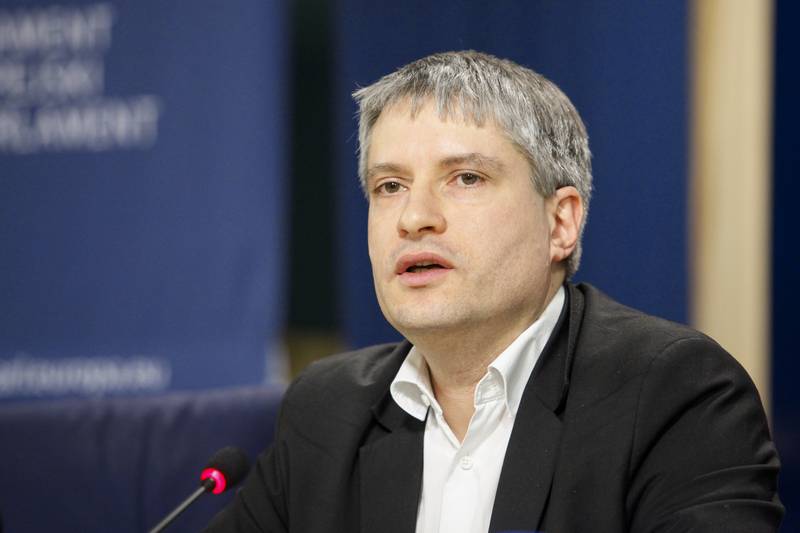 “And we have a report which shows very clearly what has to be done and what hasn't been done in the past. But what the committee could not do is to clarify who was responsible for this scandal, who were the governments blocking EU action in the past, which were the governments introducing aggressive tax avoidance schemes in Europe. So, therefore, this part could not be clarified because the Council and the member states, but also the Commission didn’t agree to give us the key documents. They gave us an awful lot of documents but not the ones where we could establish responsibility. And we are demanding to get full access to these confidential documents as it is foreseen in the rules between Commission and Parliament”, said Sven Giegold, whom I interviewed in Brussels on October 14th during the mini-plenary session.
“And we have a report which shows very clearly what has to be done and what hasn't been done in the past. But what the committee could not do is to clarify who was responsible for this scandal, who were the governments blocking EU action in the past, which were the governments introducing aggressive tax avoidance schemes in Europe. So, therefore, this part could not be clarified because the Council and the member states, but also the Commission didn’t agree to give us the key documents. They gave us an awful lot of documents but not the ones where we could establish responsibility. And we are demanding to get full access to these confidential documents as it is foreseen in the rules between Commission and Parliament”, said Sven Giegold, whom I interviewed in Brussels on October 14th during the mini-plenary session.
According to him, had the committee had full access to these documents it would have been easy to see which politicians are responsible. Some of them still occupy important positions, he said, like European Commission President Jean-Claude Juncker (Luxembourg, EPP) and Eurogroup chief Jeroen Dijsselbloem (The Netherlands, Socialists and Democrats), but many others as well. Out of 28 member states just 14 allowed the European Commission to share documents with members of the special committee, but key countries did not, and it was the “usual suspects”, as the German MEP named them. Among those are Luxembourg, Great Britain, but also Spain.
For the six months of work by MEPs in the committee thousands of pages of documents were exchanged, some of which are posted in public view on the committee’s website. Dozens of hearings were conducted in member states and the committee itself, with the most significant one being of the ministers of finance of four of the largest economies in the EU in September – Germany, Italy, Spain, and France. Because of this investigation it was for the first time in history that an acting president of the Commission appeared before a parliamentary committee. He was also interviewed in September, together with the Commissioner in charge of taxation policy, Pierre Moscovici (France, Socialists and Democrats). Members of large multinational companies were also interviewed, although most of those invited declined the interview. They are given a last chance to appear before the committee on November 16th and some of the largest trans-national companies accepted. Among the ones invited is Facebook boss Mark Zuckerberg, Google’s Eric Schmidt, IKEA’s Peter Agnefjäll.
Member states do not trust the tax committee
In the beginning of his term, the chairman of the special committee, Alain Lamassoure (EPP, France), sent out to the permanent representations a letter, requesting information on several issues: the undertaken or planned actions at the national level for increasing transparency in the sphere of corporate taxation; undertaken or planned actions for curbing tax base erosion and profit shifting; review of tax rulings issued after 1991 with dates and names of companies, data on the exchange of information with other member states since January 1st 2010; national list of tax jurisdictions, which refuse to cooperate; a list of international taxation treaties for lowering corporate tax rates.
Some replies are signed by ministers of finance, others by the permanent representative, and third by employees of ministries of finance. It is exactly the states suspected for bad taxation practises that say that the information requested by the committee is confidential. The most comprehensive reply came from Luxembourg, containing over 200 pages of information in French, German, and English. The reply is signed by the Luxembourg permanent representative Christian Brown, who stated that the government of the Grand Duchy fully supports the work of the committee, which is, however, quite limited. Many of the documents requested like the review of tax rulings are protected by tax secrecy. The relevant article of the Luxembourg Tax Code is cited.
According to Luxembourg, tax rulings contain “a substantial amount of business secrets, i.e. information that 'relates to a business which has actual or potential economic value, the disclosure or use of which could result in economic benefits for other companies”. Moreover, Christian Brown puts forward in the reply the concerns of the Luxembourg government on the lack of “explicit guarantee” that documents presented will remain confidential. “According to its mandate, the special committee is not under a legal obligation to keep any information obtained by it confidential”. The Austrian reply also calls on the lack of legal base for the disclosure of tax confidentiality. “An answer to this question [on tax rulings] would require a legal base overruling tax secrecy. Neither cited the TAXE Committee such a legal base nor was it found by analysis of relevant EU and national law”, says in the reply from a representative of the Austrian ministry of finance to Alain Lamassoure.
Some states, like Cyprus, have granted the EC permission to disclose confidential documents without keeping them. Meaning certain MEPs were allowed to review the documents with no possibility to copy or hold on to them. Many of them have complained about this and said it impedes their work. Among them is Sven Giegold, who judged the supplied information as useful, as well as the hearings of the ministers, but underlined that members of the committee were unable to ask enough specific questions during the hearings, for they had no access to the important documents. Danuta Hübner admitted, however, that the jurisdiction of the European Parliament is limited. Competences on taxation matters in the EU are mainly with the member states. The EU has very limited competences, meaning the EP has limited competences as well, she told euinside on October 15th.
This is exactly the reason why she feels that it is useless to appoint a permanent taxation committee. Sven Giegold blames the right-wing powers in the European Parliament – EPP and ECR – for being against the extension of the term of the investigating committee. He feels this way they are covering up the real culprits. Socialists have not commented yet and the members of the Europe of Freedom and Direct Democracy group from Beppe Grillo’s Five Star movement have announced that they support it. The Socialists did not respond to euinside’s invitation for interview. The invitation to committee members from the ECR also remained with no answer. Sven Giegold urged pro-European powers not to weaken the European Parliament and not to tolerate the lack of transparency by the Council and the Commission regarding Parliament. He voiced his concern that if the term of the committee were not extended, the Council and the Commission would put the recommendations report in some drawer and end of story. He urged that the committee’s report be voted as preliminary. The permanent final one is to be after the term of the committee is extended.
Danuta Hübner agrees that there are probably loopholes in the legislation and changes are needed in the rules on how European institutions function, mainly regarding the leak of documents, but on the other hand she stated that when we talk about confidential information the rules are clear and they must be followed. “But at the same time, I think that we shouldn’t exaggerate the impact of the fact that we didn’t have access to all the documents on time and the impact of this on the report. Because, I think we had enough conversations, enough briefings, enough meetings, enough documents to understand the procedures and to see what went wrong, so I don’t feel like you mentioned colleagues from some political groups and other political groups that we couldn’t do our job. I think it would be easier if we had access to everything immediately, but I think we, on the basis of what we've got, we could understand the procedures and we could forward good, deep recommendations”.
At the negotiation of one of the most important European laws - the one on resolving failing banks – there also arose a problem with confidentiality, when accountability of the Single Resolution Mechanism to the European Parliament was discussed. The problem was solved with strict rules against the leaking of information in the regulation itself. Based on these rules there was created a possibility for conducting closed doors hearings and access to confidential documents.
The report of Elisa Ferreira (Socialists and Democrats, Portugal) and Michael Theurer (ALDE, Germany) was adopted at first reading this week in the special committee with 34 votes “for”, three “against” and seven abstentions. In it, there are recommendations that member states exchange information “systematically” on their tax rulings and other taxation information that could have implications on other member states. It is insisted that the European Commission plays its role of EU competition guardian better.
Automatic exchange of taxation information is halfway
The approaching end to the work of the special committee coincides with new developments on tax issues at the European level. On October 21st, the European Commission came out with a ruling in the investigation of Starbucks (The Netherlands) and Fiat Finance (Luxembourg), stating that Netherlands and Luxembourg have violated rules on competition and have provided inadmissible state aid, thus distorting the market. According to Commissioner Margrethe Westager (Denmark, ALDE), the tax rulings of Netherlands and Luxembourg have artificially lowered the tax burden of the two companies, which is illegal according to EU regulations on state aid. Meanwhile, the ministers of finance of the EU have reached a political agreement on the draft regulation on trans-border tax rulings, which allows automatic exchange of tax information.
The European Parliament, however, sharply criticised what was agreed, as it feels that it is far weaker than what the initial Commission proposals were. Sven Giegold explained to euinside that the decision of ministers is a halfway one. There is going to be exchange of information on tax rulings between member states, it will be automatic, and that is progress. On the other hand, however, he said, in the EC’s proposal it was clearly stated that tax rulings are to be shared with the EC as well, to serve as a basis for the initiation of investigations like the one against Netherlands and Luxembourg for unlawful state aid. With the ministers’ decision from the start of October, however, it is forbidden to the Commission to receive the names of companies in the tax rulings, so it will be able to use the data provided for statistical purposes only. “This means the Commission has been enormously weakened in the proposal. This shows the member states were not ready to really act vigorously in this sense and the Commission didn’t interfere and defended its rights. And unfortunately, Mr Juncker hasn’t interfered in the negotiation and said 'I insist that my authority gets all the rights' and, therefore, they have cut the wings really of the Commission”, explained the MEP.
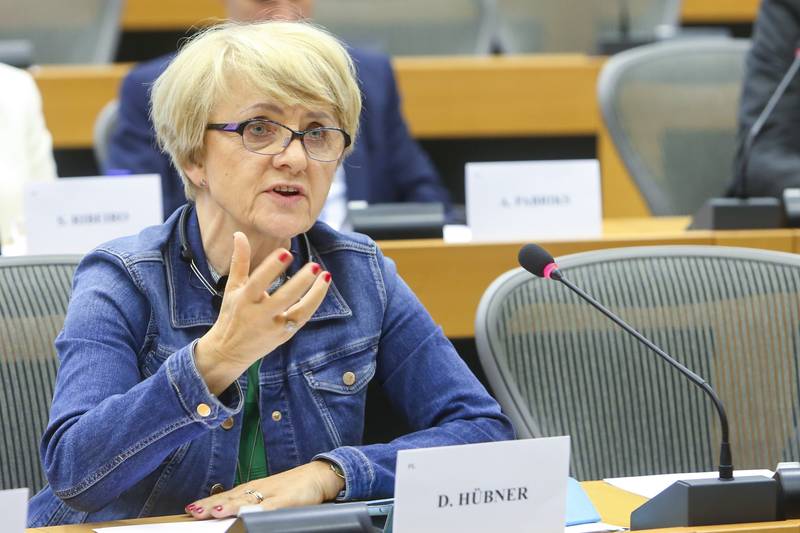
He refused to make a connection to a possible conflict of interests in the Juncker case. “This I cannot say. I don’t know whether this is because of a conflict of interest. I only can say that, at that point, he didn’t stand up for tax justice”. There was an agreement between him and the Polish MEP Danuta Hübner on the issue of what got voted by the finance ministers. She, however, was much more outraged by the fact that the Council did not take into account the opinion of the EP. In this case, the European Parliament has no competence on tax issues, only an advisory role. “I think it would be much more elegant if the Council waited for the opinion to be voted in the EP, so we believe that it was really not elegant. I'd say gentlemen don’t do it and we're very unhappy about this.” She expressed hope that the Council would in the end take into account the views of MEPs. The European Commission in turn welcomed the member-states agreement.
On November 16th, the special committee will have an extraordinary hearing with representatives of multi-national companies that have so far been refusing to come forward. The focus of the hearing will be on the erosion of tax base and profit shifting, as well as on the consultations that the Commission has renewed on the common consolidated corporate tax base. The final vote on the committee’s report is expected during the second plenary session of the European Parliament in late November.
*The full interviews of Danuta Hübner and Sven Giegold can be seen in the attached video files.
Translated by Stanimir Stoev
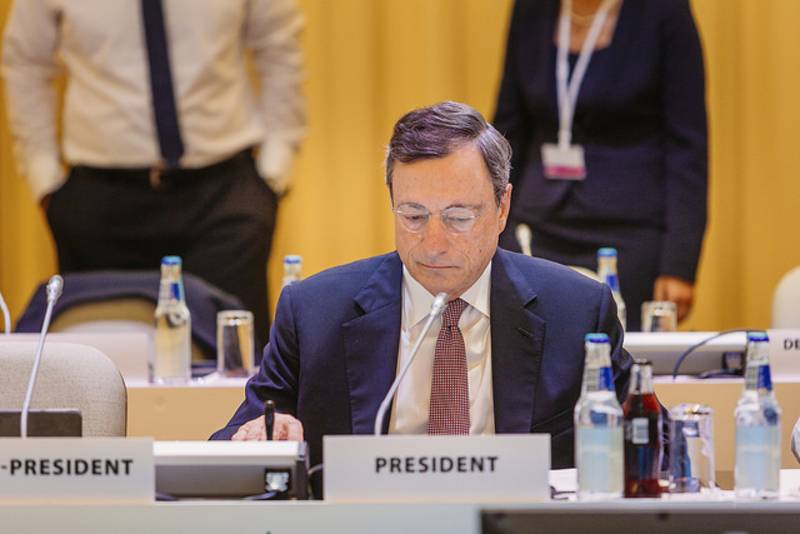 Mario Draghi | © ECB
Mario Draghi | © ECB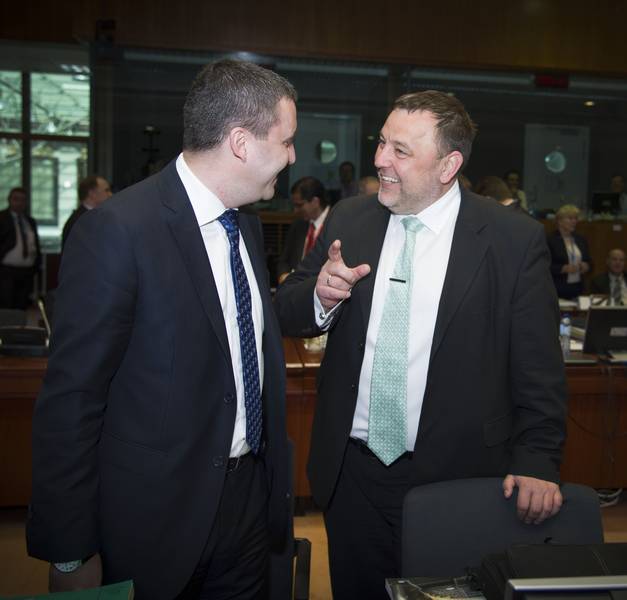 Vladislav Goranov, Sven Sester | © Council of the EU
Vladislav Goranov, Sven Sester | © Council of the EU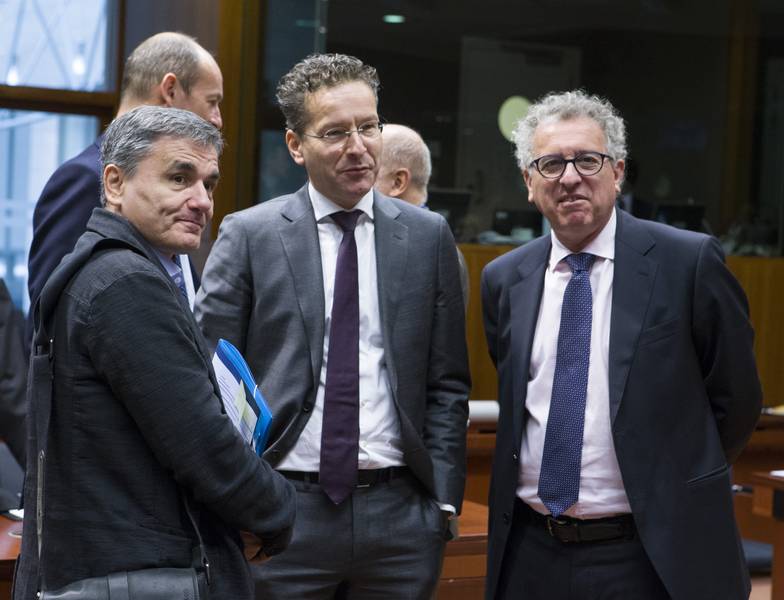 Tsakalotos, Djisselbloem, Gramegna | © Council of the EU
Tsakalotos, Djisselbloem, Gramegna | © Council of the EU